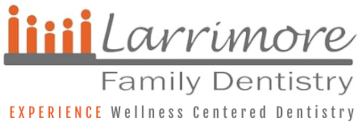Office Policy Regarding Dental Insurance
It is important we receive all of your dental insurance information if you would like us to submit claims on your behalf. In order to help you in the most effective manner, having this information well ahead of your services, is suggested. We will be happy to file your claim for you but without all of the information, we may not be able to provide that courtesy.
Get Familiar With Your Dental Plan
Although we strive to make using your insurance in our office as simple as possible, you must be familiar with your dental insurance benefits. This includes, but is not limited to:
- Eligibility
- Benefits (which includes knowing if there are out-of-network benefits. That means, Can you go to any dentist or does the insurance only pay if you go to a participating provider?)
- Usual, Customary & Reasonable (UCR) fees. These are amounts your insurance sets for each procedure.
- Co-pays
- Deductibles
- ID and group numbers
- Dental claims mailing address
- Customer service telephone number
- Employer’s name (if applicable)
- Assignment of benefits (Where is the insurance reimbursement sent – to us or directly to you?)
We know this list is long and somewhat confusing, which is why having all necessary information is a must when asking us to assist you with your policy.
In some cases, your insurance reimburses you directly and we ask that you pay in full at the time of service. By law, your insurance company is required to pay each claim within 30 days of receipt. We file most insurance claims electronically, so in most cases your insurance company will receive each claim within days of the treatment.
You are responsible for whatever your insurance does not pay.
Dental Insurance Claims
Please understand that we file dental insurance as a courtesy to our patients. We are not responsible for how your insurance company handles its claims or for what benefits they pay on a claim. We can only assist you in estimating your portion of the cost of treatment. At NO TIME do we guarantee what your insurance will or will not do with each claim. We also cannot be responsible for any errors in filing your insurance; once again we file claims as a courtesy to you!
Changes to Your Insurance
Most importantly, please keep us informed of any insurance changes regardless of how insignificant the change may seem. Many times benefits change yearly as your contract renews or if you have a change in employment (even if it is the same insurance company). Depending upon of how you acquired your dental insurance coverage, it is always advisable to check with your employer’s human resources department, your insurance carrier, or the representative/company who sold you the policy (meaning if it was privately purchased not through an employer, this includes the umbrella of Medicare policies) to verify any changes to your benefits.
To aid you further, below are three facts about dental insurance that we wanted to share:
3 Facts About Dental Insurance Coverage
Fact 1 – No Insurance Pays 100% of All Procedures
Dental insurance is meant to be an aid in receiving dental care. Many patients think that their insurance pays 90% – 100% of all dental fees. THIS IS NOT TRUE! Most plans only pay between 50% – 80% of the average total fee. Some pay more, some pay less. The percentage paid is usually determined by how much you or your employer has paid for coverage or the type of contract your employer has set up with the insurance company.
Fact 2 – Benefits Are Not Determined by Our Office
You may have noticed that sometimes your dental insurer reimburses you or the dentist at a lower rate than the dentist’s actual fee. Frequently, insurance companies state that the reimbursement was reduced because your dentist’s fee has exceeded the usual, customary, or reasonable fee (“UCR”) used by the company. A statement such as this gives the impression that any fee greater than the amount paid by the insurance company is unreasonable or well above what most dentist in the area charge for a certain service. This can be very misleading and simply is not accurate.
Insurance companies set their own fee schedules/allowances. Each company uses a different set of fees they consider allowable. These allowable fees may vary widely because each company collects fee information from claims it processes. The insurance company then takes this data and arbitrarily chooses a level they call the “allowable” UCR Fee. Frequently, this data can be three to five years old and these “allowable” fees are set by the insurance company so they can make a net 20% – 30% profit.
Unfortunately, insurance companies imply that your dentist is “overcharging” rather than saying that they are “underpaying” or that their benefits are low. In general, the less expensive insurance policy will use a lower usual, customary, or reasonable (UCR) figure.
Fact 3 – Deductibles & Co-Payments Must Be Considered
When estimating dental benefits, deductibles and percentages must be considered.
Cost Illustration
To illustrate, assume the fee for service is $150. Assuming that the insurance company allows $150 as its usual and customary (UCR) fee, we can figure out what benefits will be paid.
First, a deductible (on average $50, paid by you) is subtracted, leaving $100. The plan then pays 80% for this particular procedure. The insurance company will then pay 80% of $100 ($80). Out of the $150 fee, they will pay an estimated $80 leaving a remaining portion of $70 (to be paid by you, the patient).
Of course, if the UCR is less than $150 or your plan pays only 50%, then the insurance benefits will also be significantly less.
